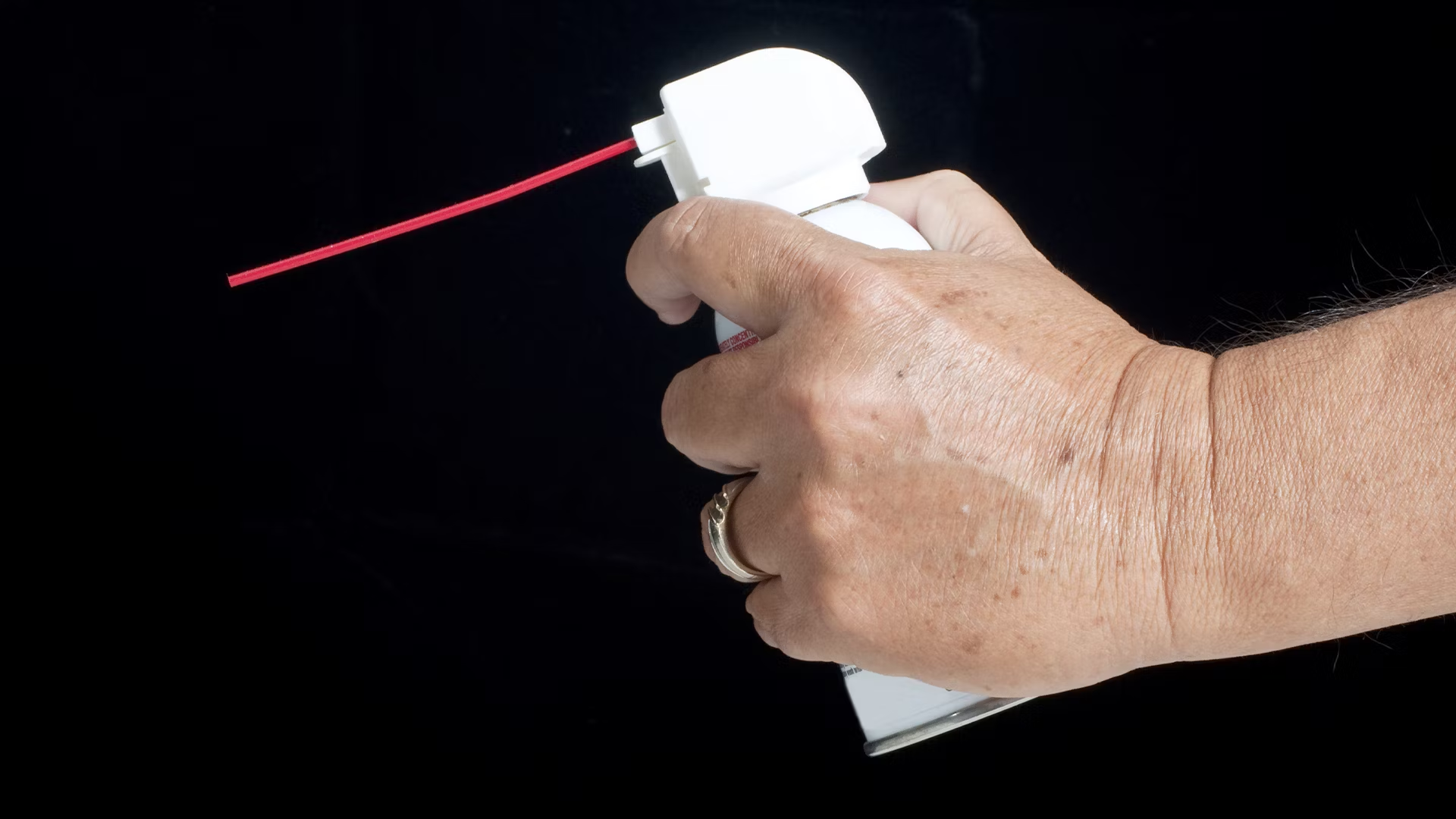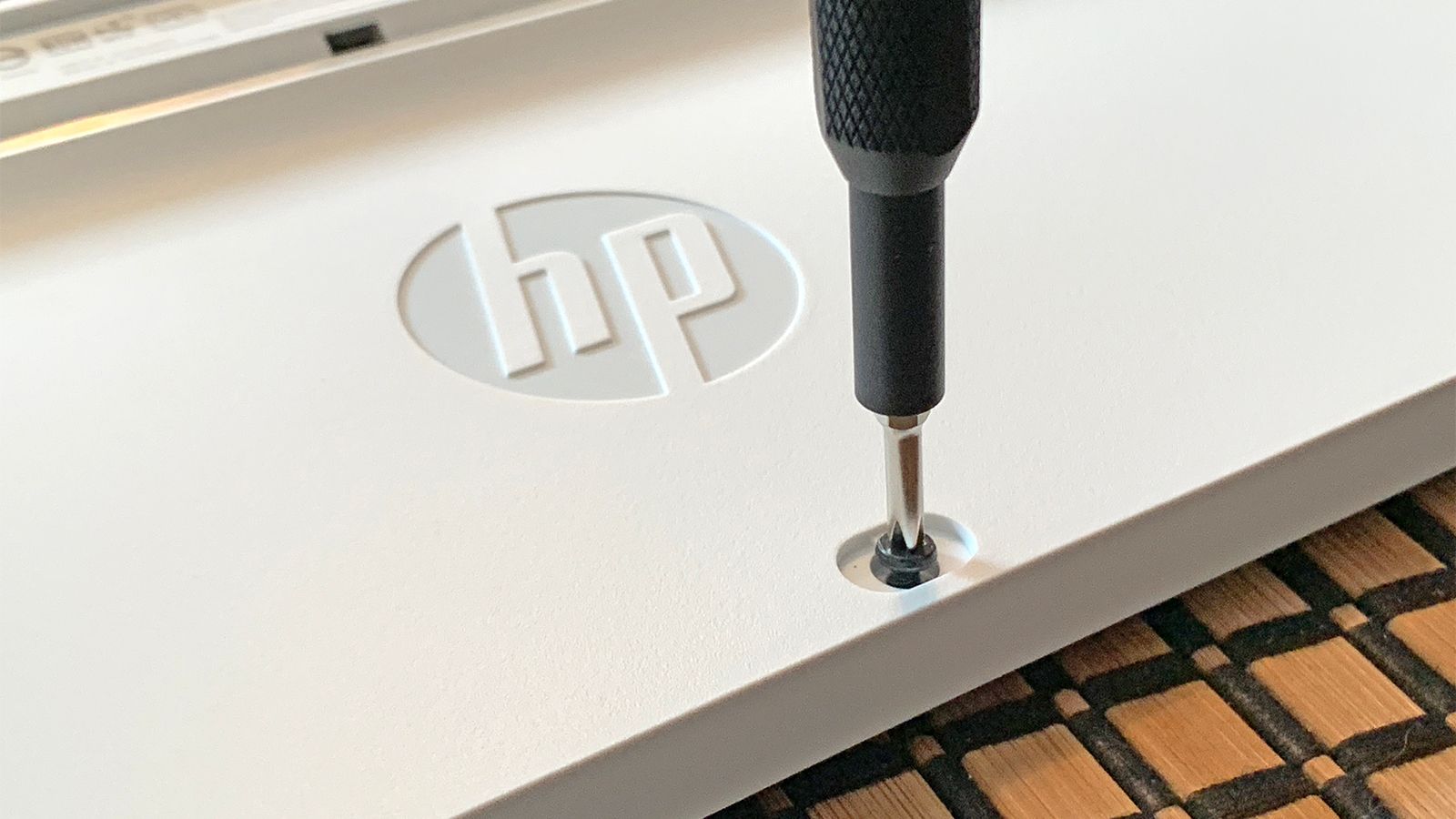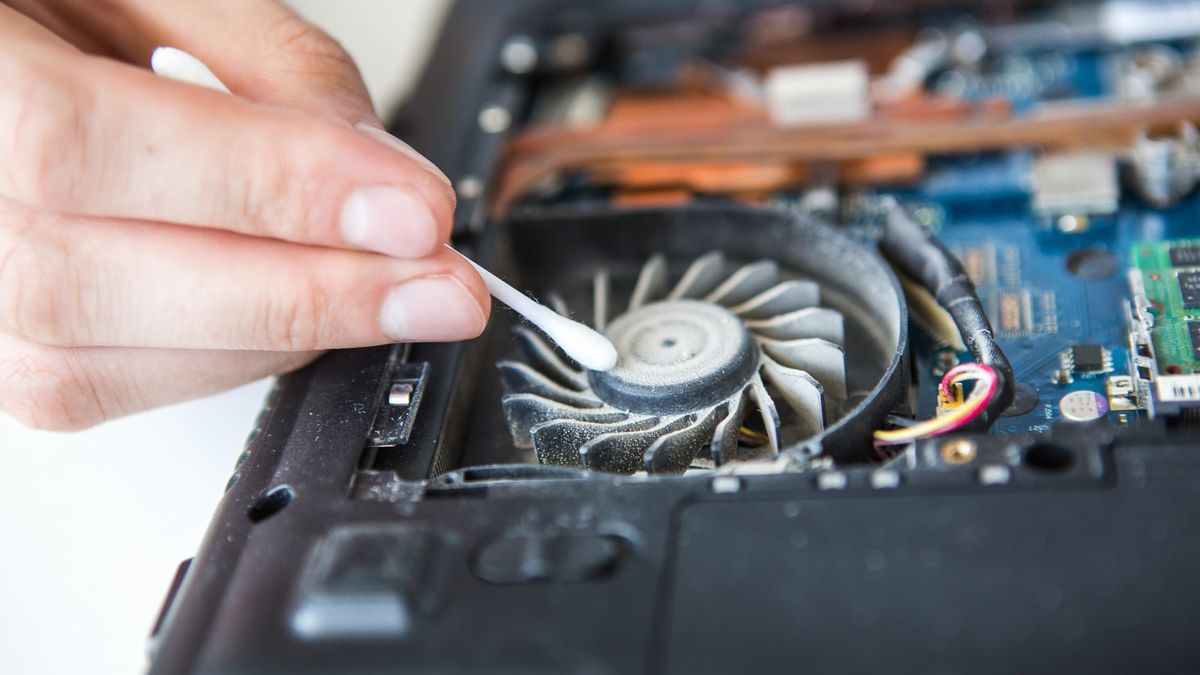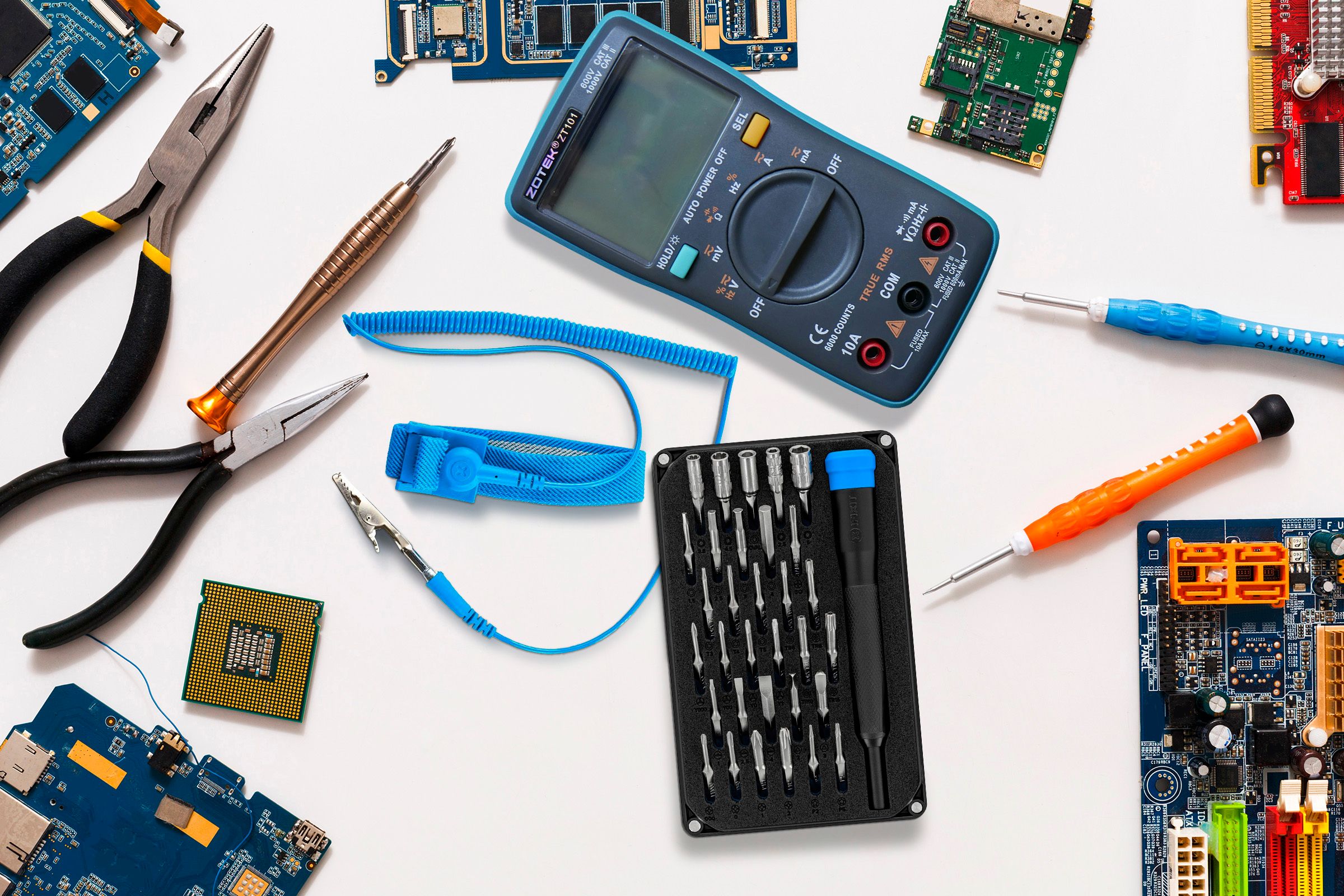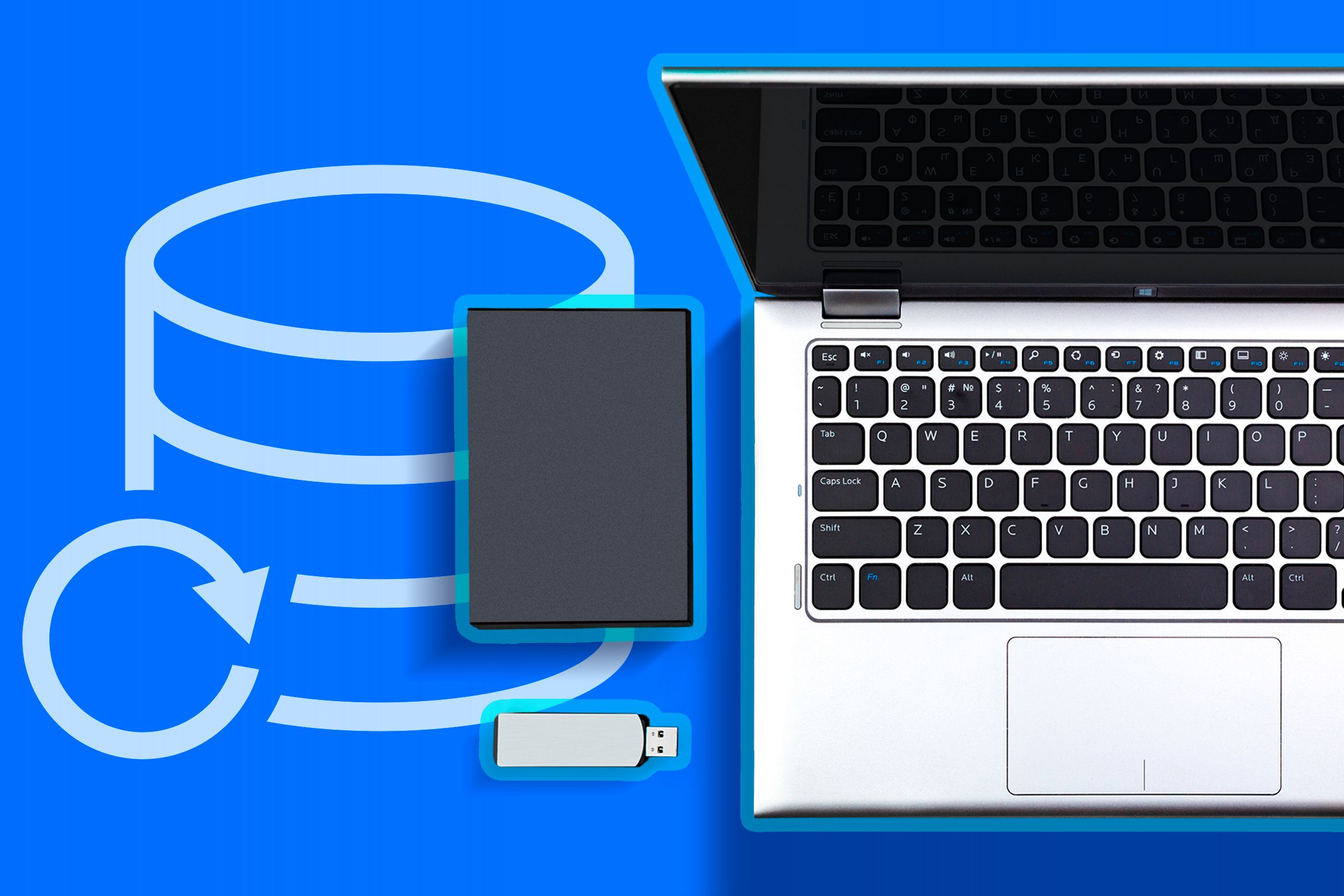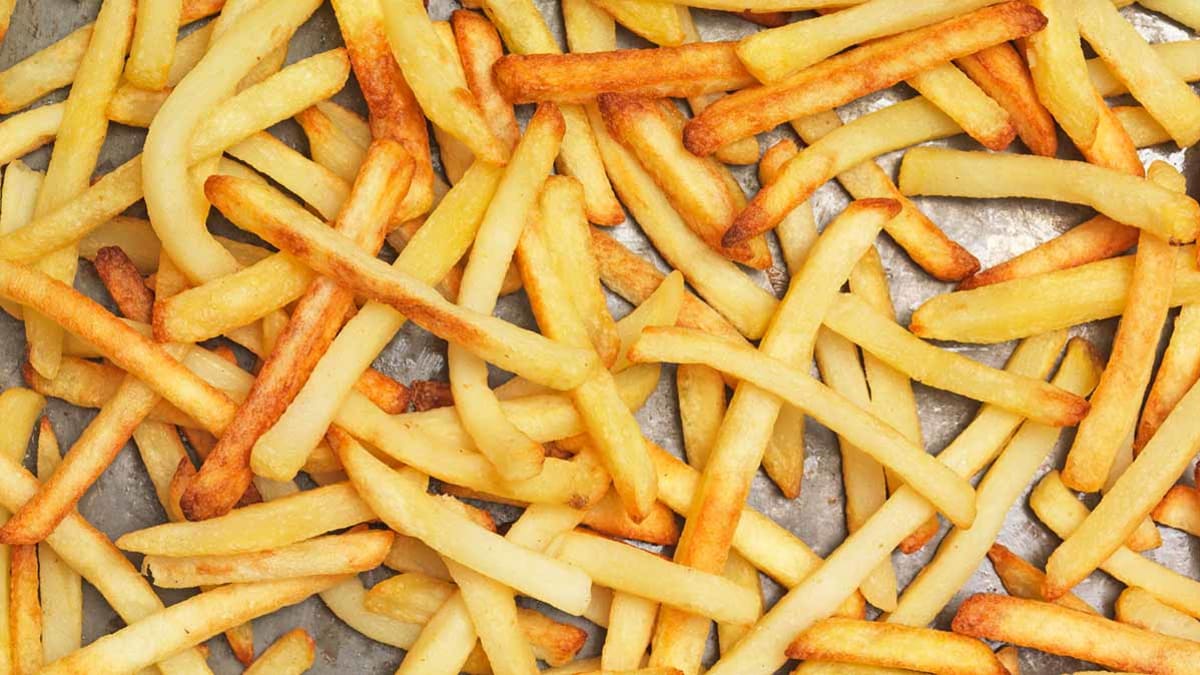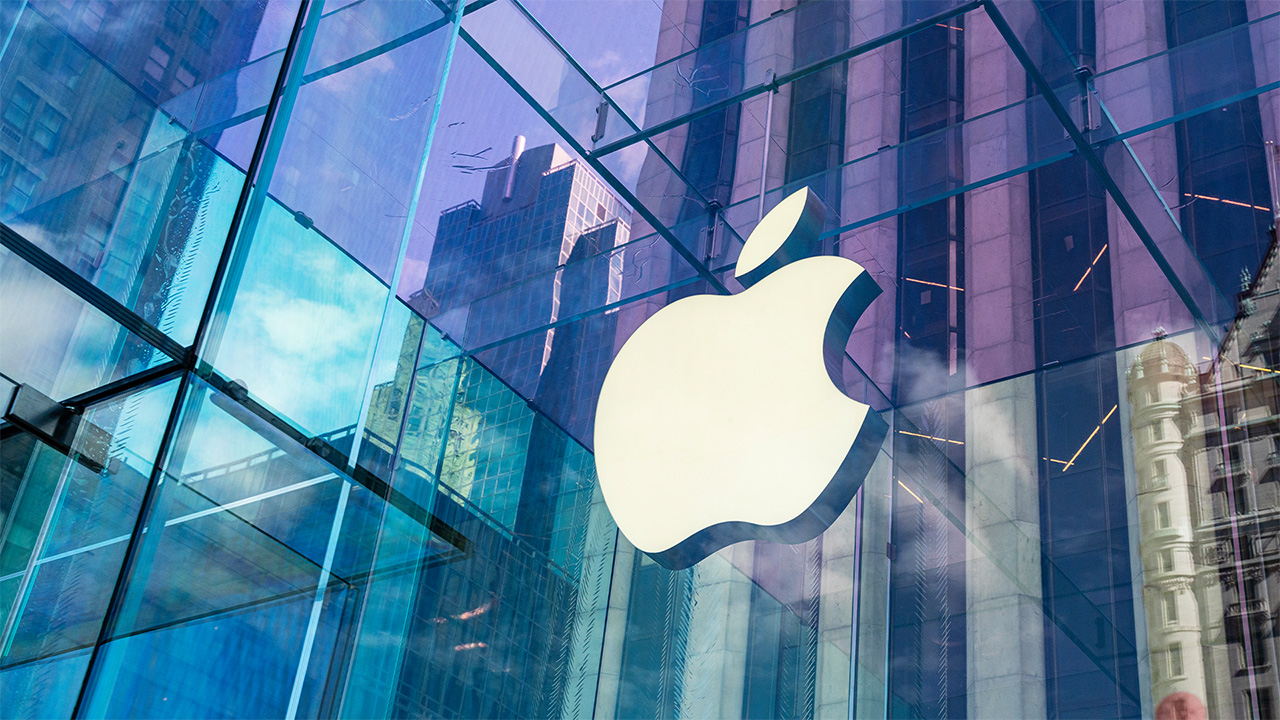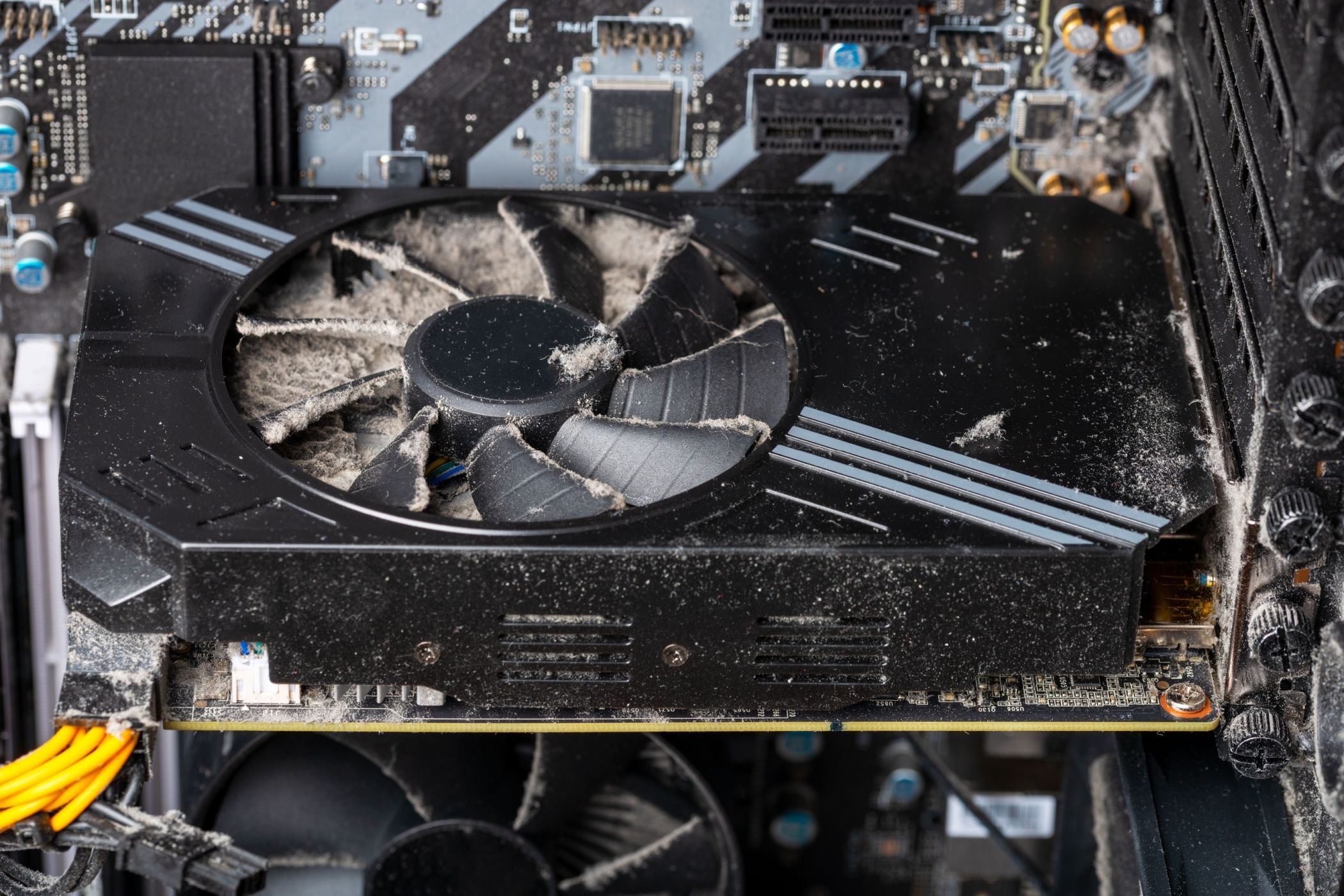
While cleaning your computer is necessary to keep it running well and help it last longer, doing it incorrectly can cause more harm than good. If you’re new to cleaning your PC or doing it for the first time, here are some common PC cleaning mistakes to avoid that could end up straining your wallet.
1
Failing to Turn Off Your Computer
The most important mistake to avoid is cleaning your computer while it’s turned on. When your device is powered up, it continuously supplies power to components like RAM, SSDs, motherboards, and others that you need to clean. If any cleaning solution or spray gets on these powered parts, it could easily cause a short circuit.
Your fingers could get caught in a spinning GPU fan. You could risk a shock when touching the internal circuits. Also, static electricity from your hands could damage the powered components. That’s why you must always properly turn off your computer and unplug it from the power source. For laptops, make sure to unplug the charger and remove the battery.
2
Neglecting Static Electricity Risks
Even a small static discharge can be enough to damage your PC components. Static charge can build up from rubbing your hands or walking on carpet, particularly in cold weather. If you handle your PC components without precautions, you could accidentally discharge static electricity onto them, potentially causing permanent damage that requires replacement.
To prevent this, always ground yourself before touching your PC’s internal parts. You can also use an anti-static wrist strap to prevent the buildup of static electricity. You must also clean your laptop on a non-conductive surface, like a wooden table. Also, avoid wearing materials like wool that can increase static buildup.
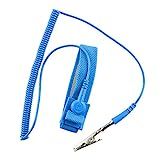
iFixit Anti-Static Wrist Strap
This anti-static wrist strap by iFixit is perfect for whenever you need to work on your PC or, really, any electronics. Also, it’s fairly cheap.
3
Spraying Compressed Air Incorrectly
Using compressed air is an excellent way to quickly remove dust and debris from ports and hard-to-reach areas, but if not used properly, it can lead to several issues. Spraying from the wrong angle can push debris deeper, a strong burst of air can loosen delicate parts, and tilting the canister could release propellant and damage your computer.
Likewise, spraying too closely can cause condensation. To avoid these mistakes, always hold the compressed air upright and spray from at least 6–8 inches away. Focus on specific areas and avoid spraying sensitive parts like circuit boards. Use a straw attachment for more precise airflow, and always use short bursts to prevent condensation.
4
Overusing Harsh Liquid Cleaners
Harsh cleaning liquids, such as those containing ammonia, can harm your PC components. Over-applying them can lead to serious issues. These chemicals can seep into crevices and cause short circuits. When applied to screens, they damage coatings, cause discoloration, or permanently ruin the display, which may require a replacement.
To avoid these risks, always use cleaning solutions designed for electronics. Dampen a microfiber cloth slightly, and never spray liquid directly onto your device. When cleaning ports, keyboards, or other parts, use minimal cleaner to prevent moisture from seeping in. Always follow the manufacturer’s guidelines for any cleaning product you use.
Also, use the cleaner in a well-ventilated area and allow the liquid to evaporate fully before reconnecting components.
5
Improper Disassembly and Losing Screws
Improperly disassembling your computer during cleaning can lead to damage to the PC casing and internal components, accidental disconnections of critical cables, or even short-circuiting your system. Also, mishandling components while removing them could cause serious harm. If you’re not careful, you might even lose screws if they aren’t properly stored.
Before cleaning your computer for the first time, make sure to review the manual for proper disassembly instructions. To avoid losing screws, use tools like magnetic screwdrivers and organize them in a way that makes it easy to track their placement. If you’re ever uncertain about any step, seek professional help to prevent making costly mistakes.
Before reassembling the case, ensure that all cables and components are properly reconnected and nothing is left unplugged. Then, power your computer back on.
6
Skipping Certain Areas During Cleaning
When cleaning our computers, we often concentrate on the more noticeable areas, like the keyboard, screen, and exterior, but overlook harder-to-reach spots, such as vents and fans. Dust and debris can block airflow, which can cause overheating and reduce performance. Also, dust buildup inside ports can occasionally cause connectivity problems.
That’s why you must clean all areas of your computer, especially those that are easily overlooked. Use compressed air or a soft brush to gently remove dust from vents, fans, and ports. Don’t forget to remove, clean, and safely reinsert any clogged dust filters. Regularly check these areas to prevent dust buildup.
Similarly, make sure to clean external accessories you use with your computer, such as external drives, keyboards, mice, and their cable connections, to keep it running properly.
Using improper cleaning tools can damage your computer unintentionally. Rough cloths and abrasive sponges may fail to remove dust effectively and leave behind residue. Brushes with hard bristles can scratch delicate surfaces, especially your screen, and potentially damage ports, vents, fans, and internal components.
To avoid this, always use the right cleaning tools. A microfiber cloth can pick up dust without scratching the surface. Compressed air or a soft, anti-static brush can clean internal components. Never use paper towels or tissues, as they can leave marks. Avoid anything that could permanently damage your computer’s surfaces.
8
Not Backing Up Your Data Before Cleaning
There’s always a chance something could go wrong while cleaning your computer. For instance, you could mishandle or short-circuit the storage drive or make an error that renders your computer inoperable. In such cases, you risk losing access to important files, such as documents, photos, or work projects.
Given the potential consequences, you must always back up your data—at least the files you might need in the next day or two—before cleaning your computer. Use cloud services like Google Drive, OneDrive, or Dropbox, or back up to an external SSD to ensure your data is safe and avoid the stress of potential data loss.
These are some common PC cleaning mistakes beginners often make, which can lead to expensive consequences to correct. If you’re new to cleaning, stick to proper cleaning practices. If you’re unsure about cleaning your computer yourself, seeking professional help is perfectly fine. Also, make it a habit to clean your PC regularly and avoid putting it off for weeks.
Source link


